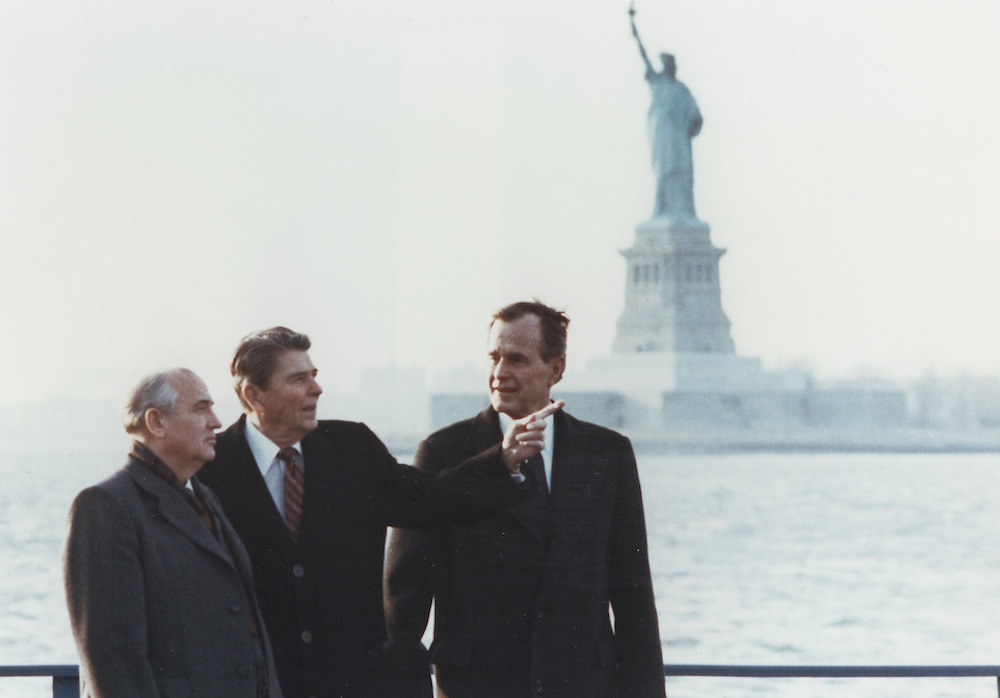By ANATOL LIEVEN

Foreign Policy Elites Are Still Invested in a Cold War With Moscow That No Longer Makes Sense
Donald Trump’s views on U.S.-Russia relations bring to mind something that Shakespeare points out in King Lear—that sometimes the court fool is the only person telling the truth.
Washington’s foreign policy establishment is an imperial court of a particularly Byzantine kind, and when it comes to Russia and certain other areas of policy, the court’s insular, conformist, and bipartisan consensus has so crushed free discussion, essential critiques have been banished to the fringes. No Washington analyst or commentator who values his or her career, and wants to be recognized as residing within the narrow confines of mainstream American “nationalism,” is likely to have the guts to challenge settled wisdom when it comes to U.S.-Russia relations.
Enter Trump. The candidate may be a professional TV clown, with buffoonish and dangerous opinions on a wide array of issues, but when it comes to Russia, his views merit serious consideration.
The U.S. media obsesses over Trump’s rather grotesque personal admiration for Vladimir Putin, and the authoritarian, macho, tough guy image that both seek to portray. But this focus allows the media and foreign policy analysts to avoid addressing the actual content of Trump’s broader Russia policy.
Perhaps that’s not surprising, given how the U.S. media and commentariat have long conflated Russia with Putin. Russia’s behavior is often portrayed as springing from the personal whims of a brutal dictator, rather than reflecting an overwhelming consensus among Russian policy elites and society—a consensus with deep roots in Russian nationalism, strategy, and Russian history. Of course, that does not make Russian external policies correct. It does, however, make them enduring, coherent, and largely predictable. They are unlikely to change significantly even after Putin retires from the scene.
Russian actions found objectionable in Washington are most often supported by all significant factions of the Russian opposition, who can be more nationalist than Putin. But challenging “Putin” may seem an agreeable and cost-free occupation for Washington’s policy elites; challenging Russia has a rather more challenging ring to it, for anyone who knows history.
… the policy elites’ attitudes towards Russia reflect beliefs deeply entrenched in American culture. These collective beliefs have a grip so powerful that they can lead people to act against their interests …
Zocalo Public Square for more